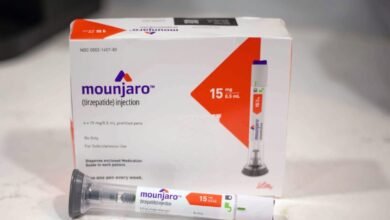Japan’s stock market is booming. It isn’t all about the weak yen.

Is a weak currency good for Japan’s stock market? It is complicated.
Is a weak currency good for Japan’s stock market? It is complicated.
A lower yen is traditionally seen as positive for Japanese stocks as it should make its exports more competitive. And this is certainly still true to some extent. More than half of the companies in the Topix index are exporters, according to Bank of America. The broker estimated that every additional yen to the dollar in the exchange rate might boost operating profit for companies in the Topix 500, which tracks the largest Japanese companies, by 0.5%. Indeed, Toyota and Honda this week reported record profits for the fiscal year through March, partly helped by the cheaper yen.
Premium benefits
35+ Premium articles every day
Specially curated Newsletters every day
Access to 15+ Print edition articles every day
Subscriber only webinar by specialist journalists
E Paper, Archives, select The Wall Street Journal & The Economist articles
Access to Subscriber only specials : Infographics I Podcasts
Unlock 35+ well researched
premium articles every day
Access to global insights with
100+ exclusive articles from
international publications
Get complimentary access to
3+ investment based apps
TRENDLYNE
Get One Month GuruQ plan at Rs 1
FINOLOGY
Free finology subscription for 1 month.
SMALLCASE
20% off on all smallcases
5+ subscriber only newsletters
specially curated by the experts
Free access to e-paper and
WhatsApp updates
A lower yen is traditionally seen as positive for Japanese stocks as it should make its exports more competitive. And this is certainly still true to some extent. More than half of the companies in the Topix index are exporters, according to Bank of America. The broker estimated that every additional yen to the dollar in the exchange rate might boost operating profit for companies in the Topix 500, which tracks the largest Japanese companies, by 0.5%. Indeed, Toyota and Honda this week reported record profits for the fiscal year through March, partly helped by the cheaper yen.
But the currency’s recent sharp depreciation hasn’t appeared to boost stock. The Topix index has fallen 1.5% since the end of March even as the yen has cratered. The yen touched 160 to the dollar at one point in April before a suspected intervention by the Japanese government brought it back. It is now trading at 156 against the dollar, nearly 10% weaker than at the beginning of the year.
A further rapid depreciation of yen—it lost 4% against the dollar just in April—would pose two risks to the market.
First, it could raise the costs of imports such as food and energy, in turn hurting growth in real wages and consumer spending. J.P. Morgan calculated that a yen depreciation would be positive for the stock market until a level of 157 yen to the dollar, the break-even point when expected pay rises would be canceled out by inflation. In March, Japan’s real wages fell 2.5% from a year earlier, but the results of this year’s annual salary negotiations gave hope that they could rise later this year. Domestically focused companies would likely fare worse than exporters, given the rising costs and the potential hit to consumption.
The other is currency risk for foreign investors, who have become more active in the Japanese stock market. The Topix index has gained 16% this year in local terms, but only 5% in dollars. Investors who don’t hedge their currency exposure might hesitate to jump into the market given the risks.
The reasons why the Nikkei 225 index hit a new high earlier this year after 34 years, such as improving corporate governance and increased shareholders’ returns, are still there. But don’t expect any additional boost from a weaker yen.
Write to Jacky Wong at jacky.wong@wsj.com
Source link





